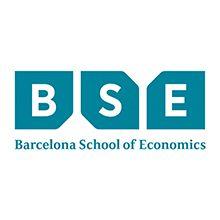ITFD students receive a thorough preparation in theoretical modeling, quantitative and empirical analysis, and handling of large datasets. In September, students take refresher courses in Mathematics and Statistics, and introductory courses in STATA, R, and Matlab. In the first term, they take core courses in Quantitative and Statistical Methods, International Trade and Finance, and Economic Growth and Development. In terms two and three, students choose from a varied set of courses in different fields, ranging from the more applied and policy oriented to PhD level courses. They also attend a series of policy lessons delivered by international experts and complete their Master Project, under the supervision of ITFD faculty.

The ITFD Program provides rigorous training in International and Development Economics. Its design reflects the view that a broad-based program focused on these fields offers the best training for ambitious students that want to pursue challenging careers in international organizations, government agencies, central banks, financial institutions, research and consulting firms and NGOs.
The ITFD Program is very flexible, in terms of both covered fields and teaching style. Students can take advantage of the broad set of elective courses in terms two and three to specialize in international trade, finance or development. For example, students particularly interested in Economic Development or International Economics can choose itineraries focused on these fields. Students interested in Econometrics and Data Analysis can take up to five courses in Quantitative and Statistical Methods and in Data Science as part of the program.
Students interested in pursuing a PhD can opt for advanced courses, including up to four PhD-level courses offered by the UPF PhD Program (organized jointly with BSE). After completing ITFD, students can stay for a second year and enrol in either the Program in Economics, the Program in Finance, or the program in Data Science for Decision Making. Automatic admission to these programs is granted upon successful completion of the ITFD Program.
- An undergraduate/bachelor/grado/laurea, or equivalent degree from an accredited college or university (for Bologna degrees, a minimum of 180 ECTS are required). A typical applicant holds a university diploma in Economics, Finance, Engineering, Mathematics, Statistics, or Business Administration, but students with academic backgrounds in other subjects have also been admitted.
- An advanced level of English language skills: TOEFL score of 90 or better / IELTS Academic Test score of 6.5 or better
- PhD Track Program only: GRE General Test score (for all other programs, GRE is optional but highlight recommended
Past ITFD graduates have found employment in international organizations, government agencies, central banks, financial institutions, research and consulting firms and NGOs. For example, past placements include World Bank, OECD, Inter-American Development Bank, Asian Development Bank, World Trade Organization, UN Development Programme, European Commission, HM Treasury, European Central Bank, UBS, BBVA, NERA Economic Consulting, McKinsey, J-PAL and Harvard’s EPoD.
After graduating from ITFD, students who opted for the more advanced courses are fully prepared to start a PhD at prestigious programs in the United States and Europe, including the Economics PhD program at UPF. For example, our alumni have pursued graduate studies at Harvard, Stanford, Columbia, New York University, London School of Economics, Stanford GSB and Cambridge.